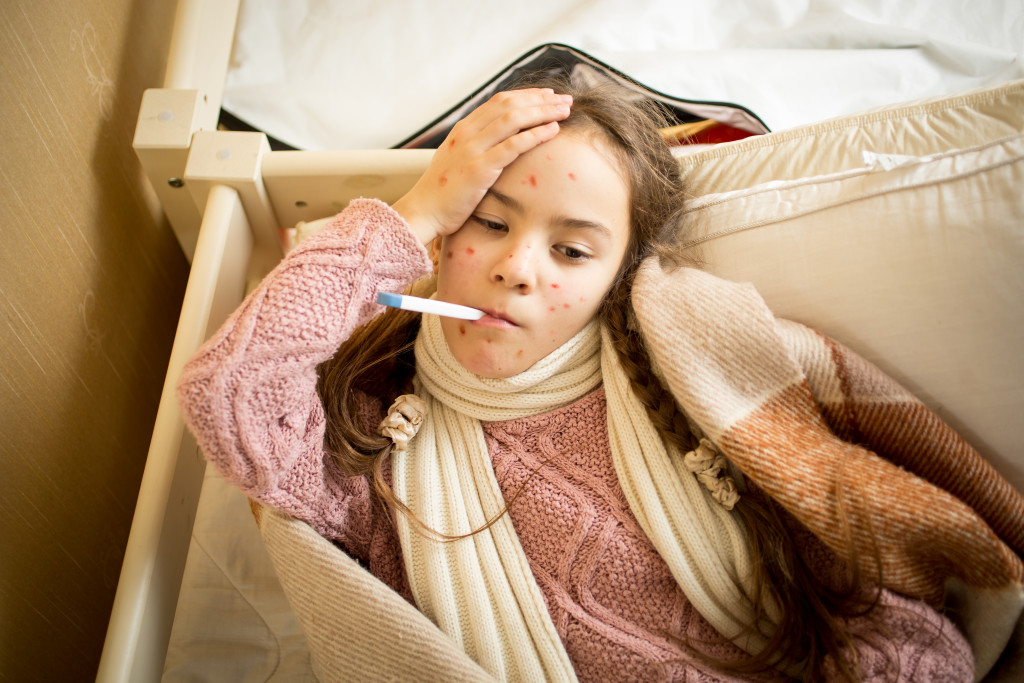The world is home to many small creatures. Creatures like ants, termites, and other insects. They live in colonies and work together to survive. However, there are even much smaller organisms than ants and termites.
Bacteria and viruses are some of the smallest organisms in the world. Bacteria are single-celled organisms that can live almost anywhere. They cause diseases like tuberculosis and cholera. Viruses are even smaller than bacteria. They cause diseases like the flu and the common cold.
Viruses and bacteria are small, but they can significantly impact humans and other animals. With the recent pandemic, the world is on high alert for these organisms, and it should be your priority to keep viral and bacterial infections in your home. Here are some ways you can do that.
Invest in Good Dinnerware
One way bacteria and viruses enter the human body is through people’s food. When people eat contaminated food, they can get sick. To prevent this, invest in good dinnerware. Look for plates and bowls made of materials bacteria and viruses cannot survive for long.
Some examples of these materials are:
- Stainless steel
- Glass
- Porcelain
- Ceramic
- Copper
These materials have decreased the survival duration of bacteria and viruses. Moreover, expensive materials like copper have been known to kill bacteria and viruses outright.
You should also invest in dinnerware that protects your spoon and fork. A spoon rest set can ensure that your spoon does not come in contact with the bacteria and viruses on your table. It can drastically reduce the chances of infections, especially if you forgot to disinfect your table beforehand.

Use a Disinfectant
Another way to reduce bacteria and viruses is to use a disinfectant. A disinfectant is a substance that kills bacteria and viruses. There are many different disinfectants, but not all are effective against all kinds of bacteria and viruses.
To find a disinfectant that is right for you, look for one that is:
- Broad-spectrum: This type of disinfectant can kill many different kinds of bacteria and viruses.
- Non-toxic: This type of disinfectant will not harm you or your family if it comes in contact with your skin or if you inhale it.
- Effective: This type of disinfectant must be able to kill the bacteria and viruses that you are trying to get rid of.
Some examples of broad-spectrum, non-toxic, effective disinfectants are:
- Hydrogen peroxide
- Vinegar
- Rubbing alcohol
- Lemon juice
You can use these substances to clean surfaces in your home. You can also use them to wash your hands. To do this, wet your hands with the substance and rub them together for about 30 seconds to a minute.
Make sure to test a small area of the surface you’re cleaning before using any of these substances. This will help you avoid damaging delicate surfaces like wood or granite countertops.
Wash Your Hands
One of the simplest and most effective ways to prevent the spread of bacteria and viruses is by washing your hands regularly and thoroughly. By washing your hands, you remove any dirt, bacteria, or viruses on your hands. Washing your hands also helps prevent the spread of these contaminants to other parts of your body or other people.
There are several ways to wash your hands effectively. The most important part is to use soap to scrub all surfaces of your hands. Be sure to include the backs of your hands, between your fingers, and under your nails. If you cannot get to a sink, you can use a hand sanitizer containing at least 60% alcohol.
Washing your hands regularly is one of the simplest and most effective ways to protect yourself from bacteria and viruses. Following these simple steps can help keep yourself and those around you healthy and safe.
Use Air Purifiers
Certain air purifiers have been shown to reduce the concentration of bacteria and viruses in the air. This is because they remove these contaminants from the air through filtration.
There are many different air purifiers, but not all are effective against bacteria and viruses. The most effective type of air purifier for this purpose is a HEPA (high-efficiency particulate air) filter. These filters can remove 99.97% of particles that are 0.3 microns in size or larger.
It might not be as effective in preventing the COVID-19 virus, but it’s good for preventing other bacterial and viral infections.
Bacteria and viruses are some of the smallest organisms in the world. They can be found on surfaces everywhere, including in your home. Fortunately, several ways to reduce the risk of bacterial and viral infections in your home. By following these tips, you can ensure your family is safe from infections inside your home.



